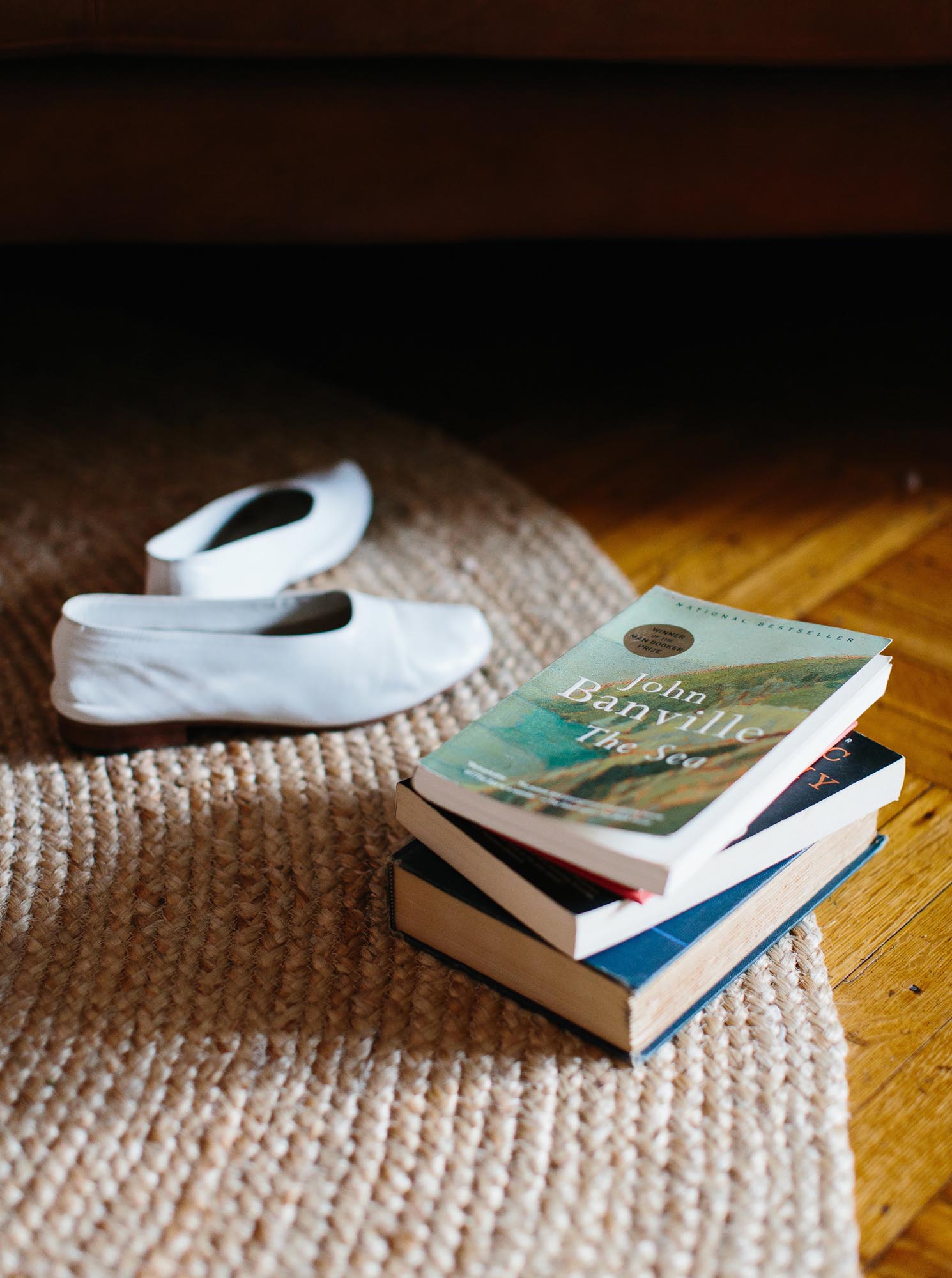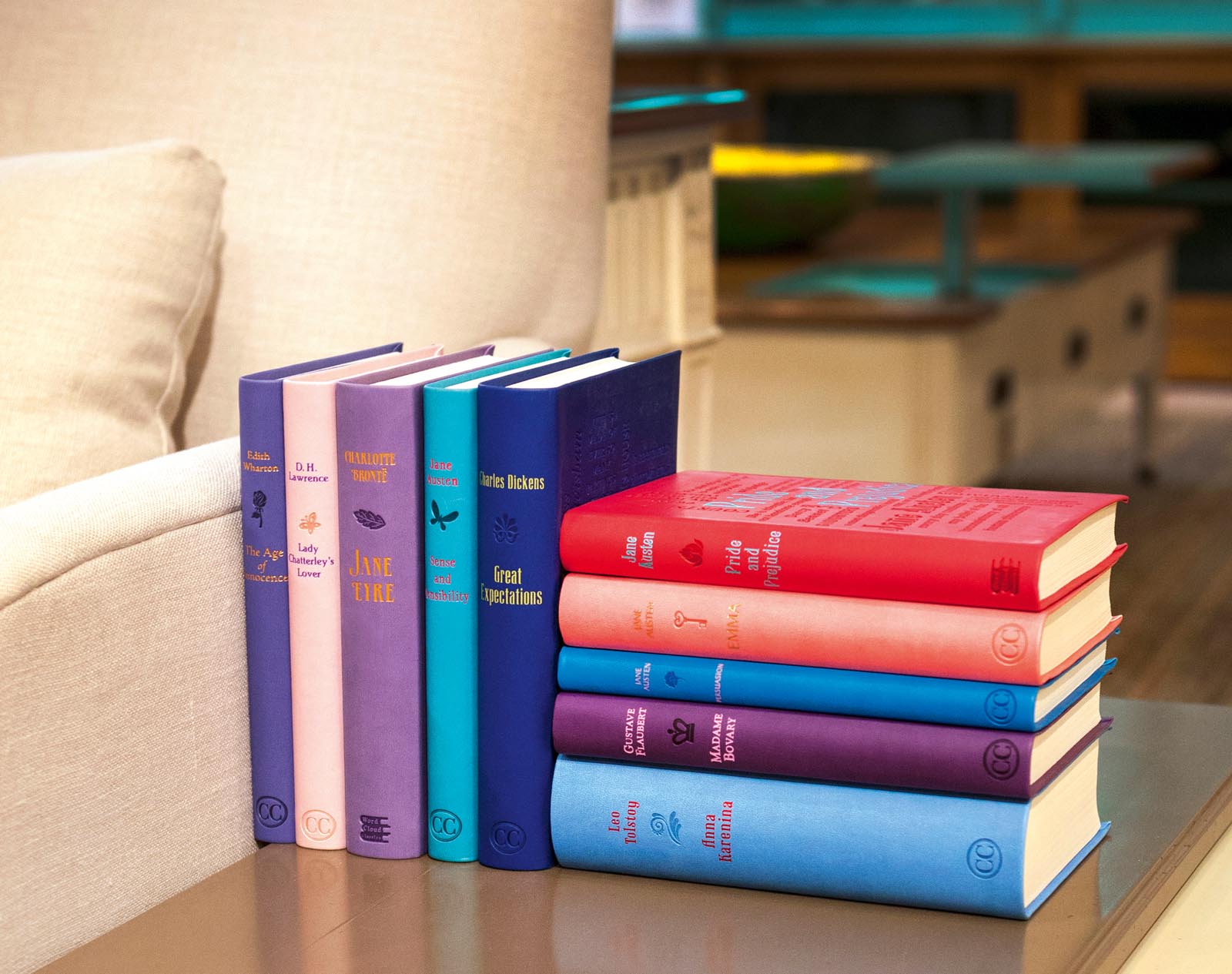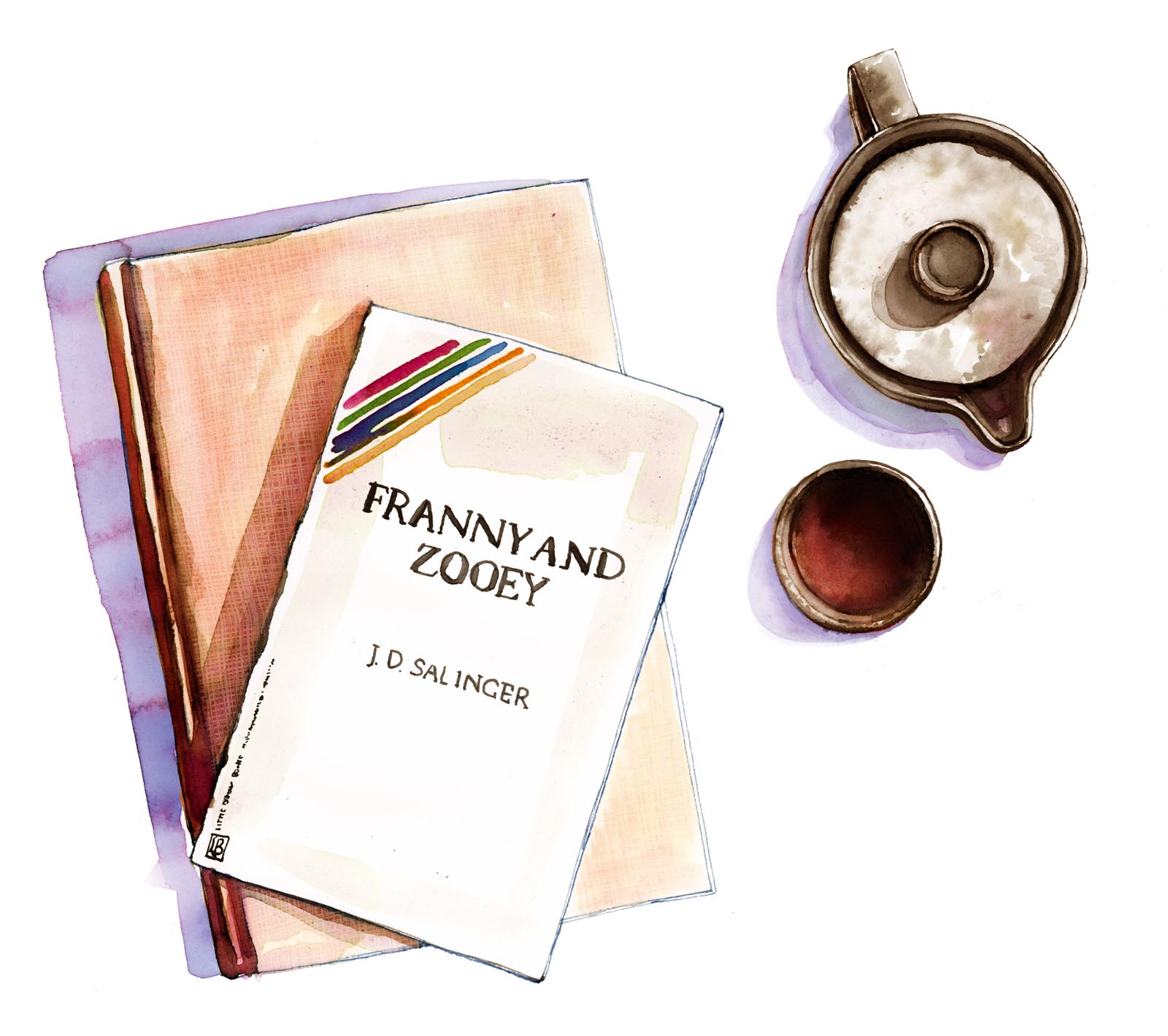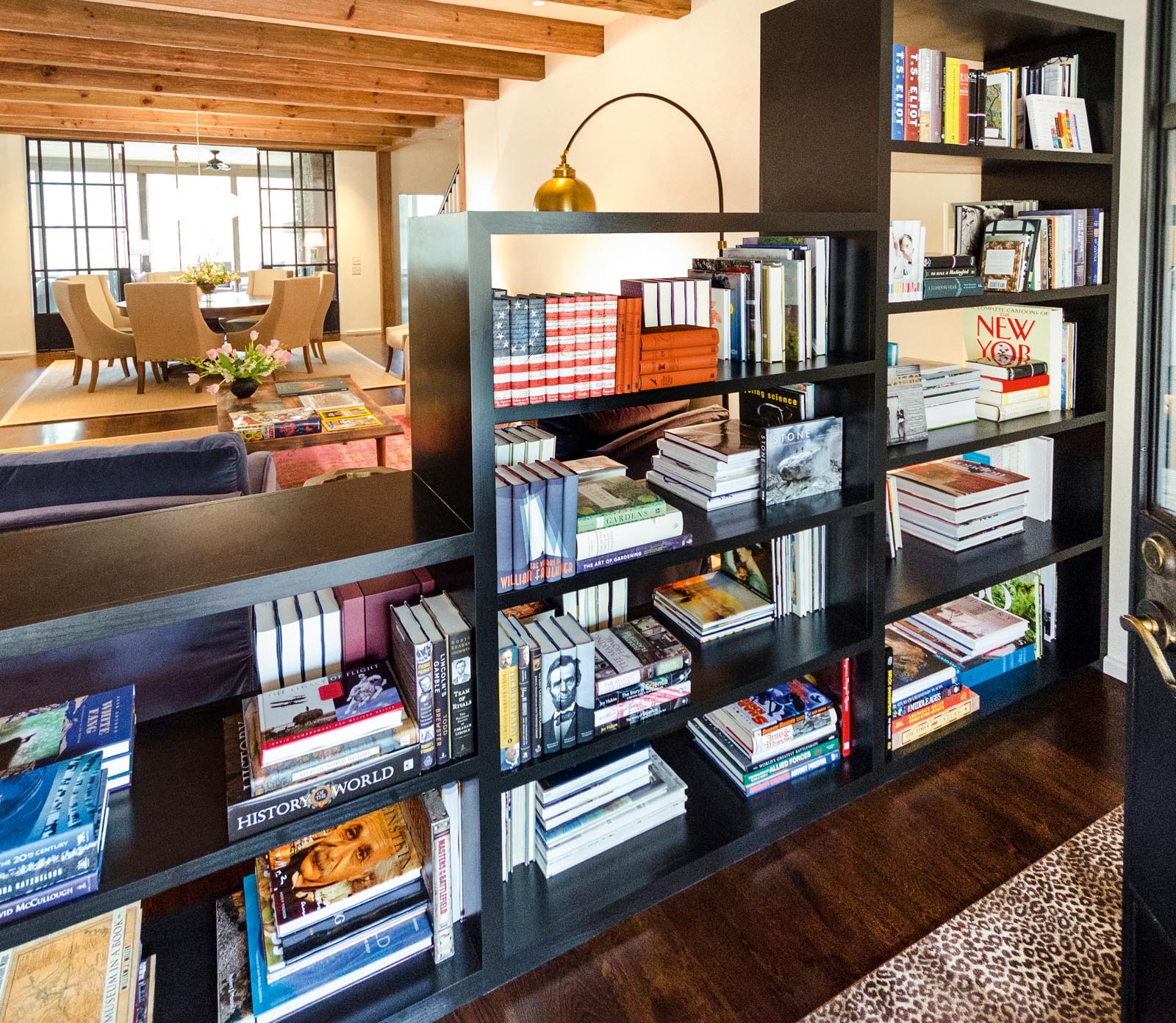
We wrote this book because we believe passionately in the power of books. Books to read and tell us stories, books to surround us and to tell our story to the world (and ourselves).
So here’s the part where we tell you to go and read your books!
Reading has tremendous benefits, especially in the digitally overloaded, time-starved world we live in. Books can help reduce our stress level. Reading printed books helps our brains retain more information. Reading in general increases empathy and books quite simply can bring us a lot of joy!

Credit: Christine Han. Features the home of Helen Dealtry.
“What a miracle it is that out of these small, flat, rigid squares of paper unfolds world after world after world, worlds that sing to you, comfort and quiet or excite you. Books help us understand who we are and how we are to behave. They show us what community and friendship mean; they show us how to live and die.”
—Anne Lamott
This book hopefully inspires you to overhaul your shelves. That’s great. But please also make time to read your books or at least hold them close and remember why you have them, who you are, and who you want to be.
It is so tempting to pick up our phones and tablets, scroll through our social media feeds, turn on the TV, or watch a show on our laptops. We would suggest that we also make time for books and reading—to find some balance between looking at screens all day—and holding a printed book in your hands.
Technology can be used in positive ways to develop good reading habits. You can set a daily reminder on your phone for dedicated reading time. You can use a laptop to catalog your library, and keep a list in the cloud for your whole family to reference when they go looking for a book. You can be inspired by great films based on books to then go and read the book. You can find just about any book ever printed online from sellers around the world alongside an ever-expanding list of print-on-demand titles.
Loving good, old-fashioned printed books is not about being a Luddite; you can love books and still buy and love the latest iPhone. Instead of resisting modern technology and the way the modern world works, harness what’s new to give your life more balance.

Tips to find more time to read in an age when it feels as if there is no time.
 Wake up a little earlier. Make reading part of your morning ritual.
Wake up a little earlier. Make reading part of your morning ritual.
 Take a book with you wherever you go. There are always ten or fifteen minutes of time throughout the day to read a chapter. This will also help with small bits of digital detox, turning to a book rather than your phone.
Take a book with you wherever you go. There are always ten or fifteen minutes of time throughout the day to read a chapter. This will also help with small bits of digital detox, turning to a book rather than your phone.
 Track your time. Elizabeth once read an article that suggested she may have more free time than she’d thought and to find this time, track it. For three days, she tracked how she spent her time, writing down where even the smallest moments went. Through this process, she found pockets of time scrolling through social media or distractedly browsing websites. Once she noticed these moments, she started choosing a book instead—whether for five minutes or ten minutes, each page adds up and creates a more delightful and intentional day.
Track your time. Elizabeth once read an article that suggested she may have more free time than she’d thought and to find this time, track it. For three days, she tracked how she spent her time, writing down where even the smallest moments went. Through this process, she found pockets of time scrolling through social media or distractedly browsing websites. Once she noticed these moments, she started choosing a book instead—whether for five minutes or ten minutes, each page adds up and creates a more delightful and intentional day.
 Slow Down. The world is moving at a faster and faster pace and it shows no sign of slowing down. But we can choose to slow down and be present in every moment. Books help us slow down, sit in one place, and immerse ourselves in the now as we comprehend and absorb what we are reading.
Slow Down. The world is moving at a faster and faster pace and it shows no sign of slowing down. But we can choose to slow down and be present in every moment. Books help us slow down, sit in one place, and immerse ourselves in the now as we comprehend and absorb what we are reading.

 Embrace an audiobook subscription. While this is not reading, per se, audiobooks are a great way to immerse yourself in stories when it is inconvenient or impossible to read, such as during a morning commute or while exercising. Thatcher loves audiobooks and they now account for about 40 percent of his book consumption. It started on long drives when he was a kid—popping audio cassettes into the car stereo—and has evolved with Audible on his phone, consumed mostly at bedtime. Audiobooks are also available at public libraries (often on disk or by digital download).
Embrace an audiobook subscription. While this is not reading, per se, audiobooks are a great way to immerse yourself in stories when it is inconvenient or impossible to read, such as during a morning commute or while exercising. Thatcher loves audiobooks and they now account for about 40 percent of his book consumption. It started on long drives when he was a kid—popping audio cassettes into the car stereo—and has evolved with Audible on his phone, consumed mostly at bedtime. Audiobooks are also available at public libraries (often on disk or by digital download).
 Digital Detox. Consider having a dedicated time of day—or week, month, or year—where you do not use your devices and instead focus on being fully present in conversations, your work, your art or writing, your thoughts, and what you are reading. You don’t have to swear off all devices forever, just find the balance. Notice if there are benefits for you and then cultivate a sustainable schedule for getting done what you need to do and being happy.
Digital Detox. Consider having a dedicated time of day—or week, month, or year—where you do not use your devices and instead focus on being fully present in conversations, your work, your art or writing, your thoughts, and what you are reading. You don’t have to swear off all devices forever, just find the balance. Notice if there are benefits for you and then cultivate a sustainable schedule for getting done what you need to do and being happy.
 Make a Dedicated Space for Reading. This book has lots of ideas for arranging books in your home. Outside the house, you might have a place, or lists of places, you regularly read—the local library, a park, a coffee shop, or even public transit.
Make a Dedicated Space for Reading. This book has lots of ideas for arranging books in your home. Outside the house, you might have a place, or lists of places, you regularly read—the local library, a park, a coffee shop, or even public transit.
If we all read more books, the world would be a much better place.
It all can start with one book. One person. One home. It’s in your hands now.
Happy reading,
Thatcher & Elizabeth
“That is the inimitable power of literature, to give context and meaning to the trials and triumphs of living.”
—Charles M. Blow1

“You think your pain and your heartbreak are unprecedented in the history of the world, but then you read. It was Dostoevsky and Dickens who taught me that the things that tormented me the most were the very things that connected me with all the people who were alive, who had ever been alive.”
—James Baldwin